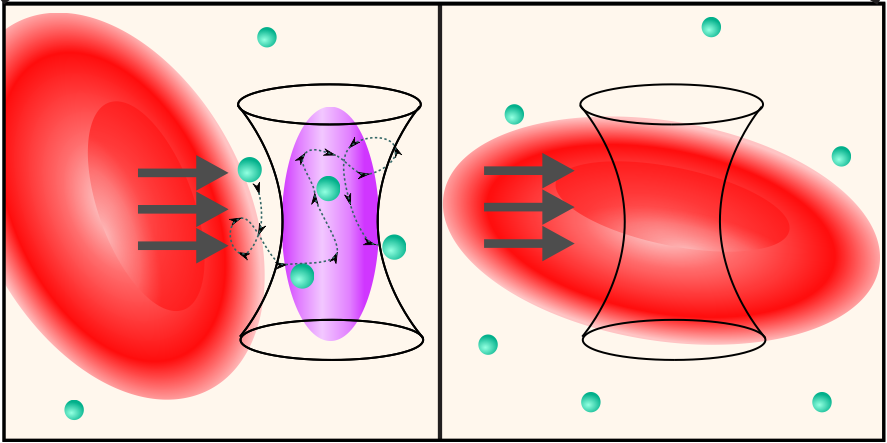Fluorescence correlation spectroscopy (FCS) is a sensitive and
selective technique
for studying the mobility of fluorescent species, such as small
molecules, macromolecules or nanoparticles, in various environments. We
develop and apply FCS based approaches to address broad range of questions in
polymer, colloid
and interface science. By monitoring the mobility of fluorescent
tracers we obtain information about the surrounding environment, which
may range from a hydrogel to a fluid/fluid interface. Alternatively, we
use FCS to measure hydrodynamic radius, fluorescence brightness and
local concentration of fluorescently labeled colloids and
macromolecules (polymers, copolymers, proteins, DNAs) and thus
investigate conformational changes, mutual interactions or aggregation.
Such studies are particularly useful for characterisation of drug
nanocarriers in biological fluids, such as blood plasma or whole blood.
Other research topics include nonlinear photonic crystals, microscopy of sliding droplets and thermo-mechanical
properties of polymer materials.
|
Mobility in Polymer Networks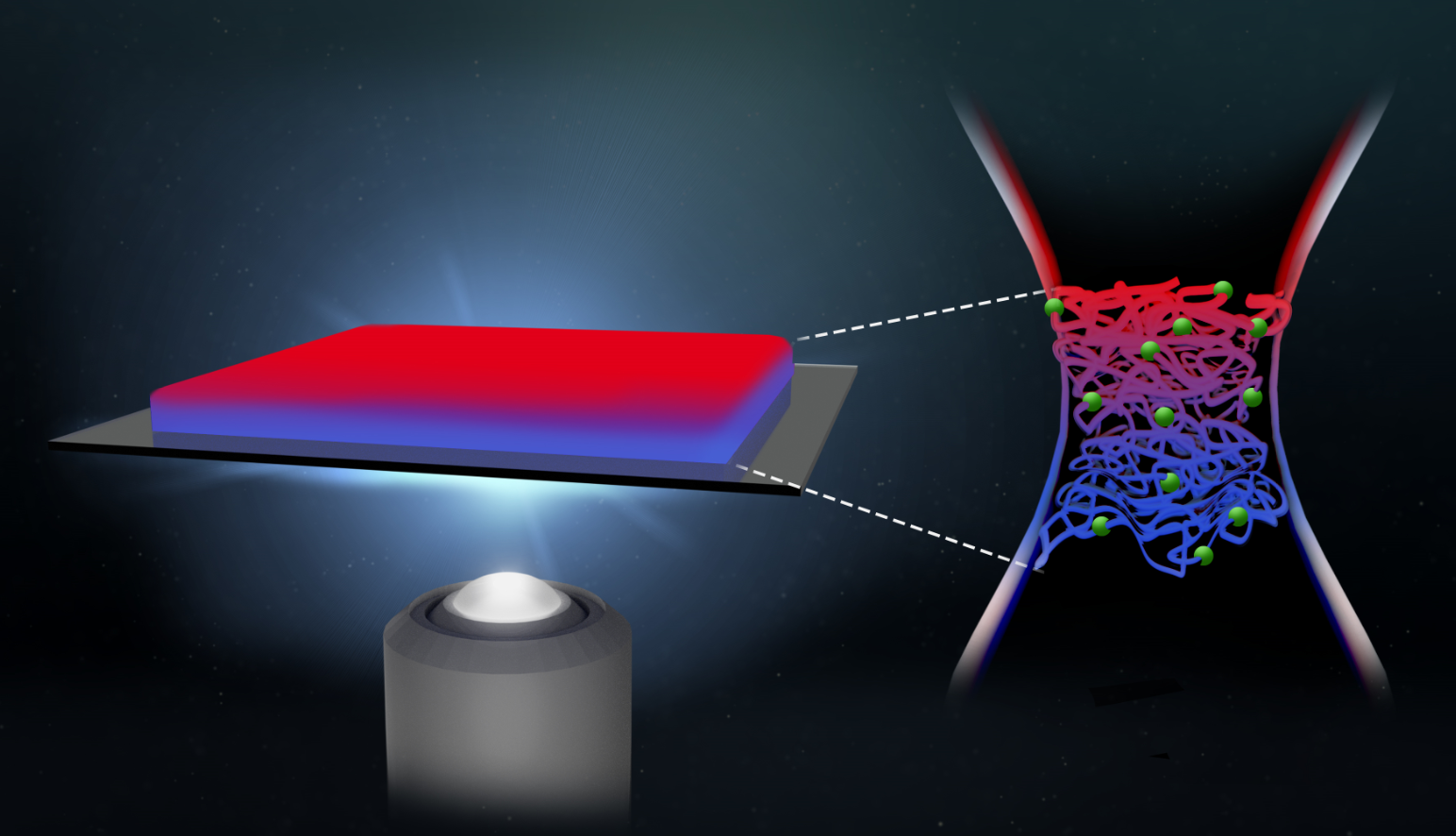 |
Flow near surface, Slip |
Nonlinear Photonic Crystals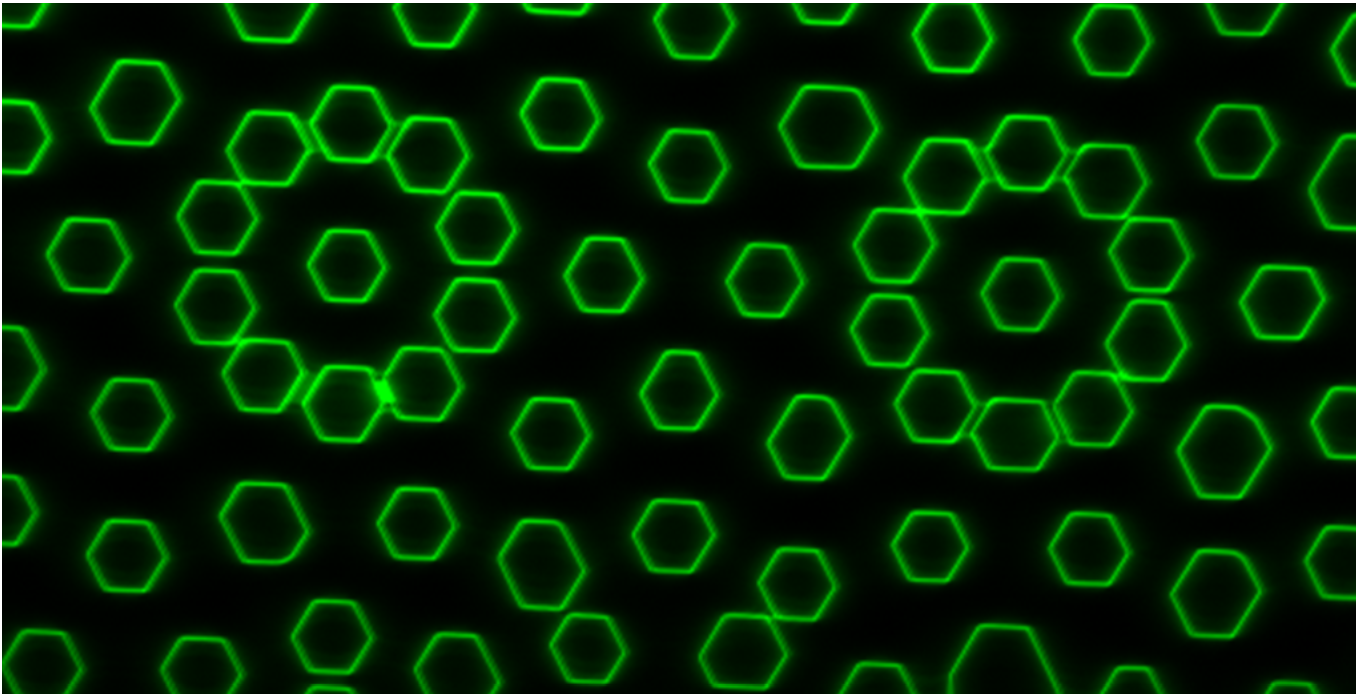
|
Microscopy of Sliding Droplets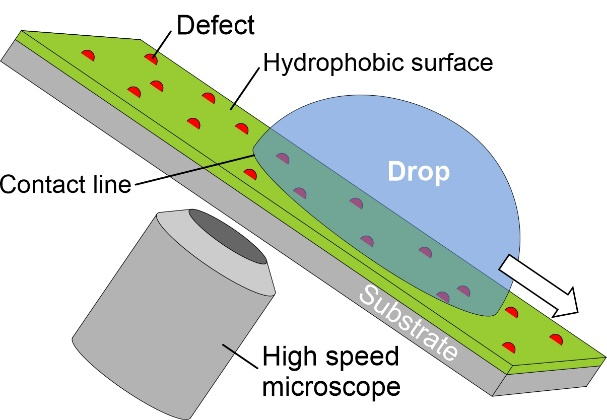
|
Mechanical properties of polymers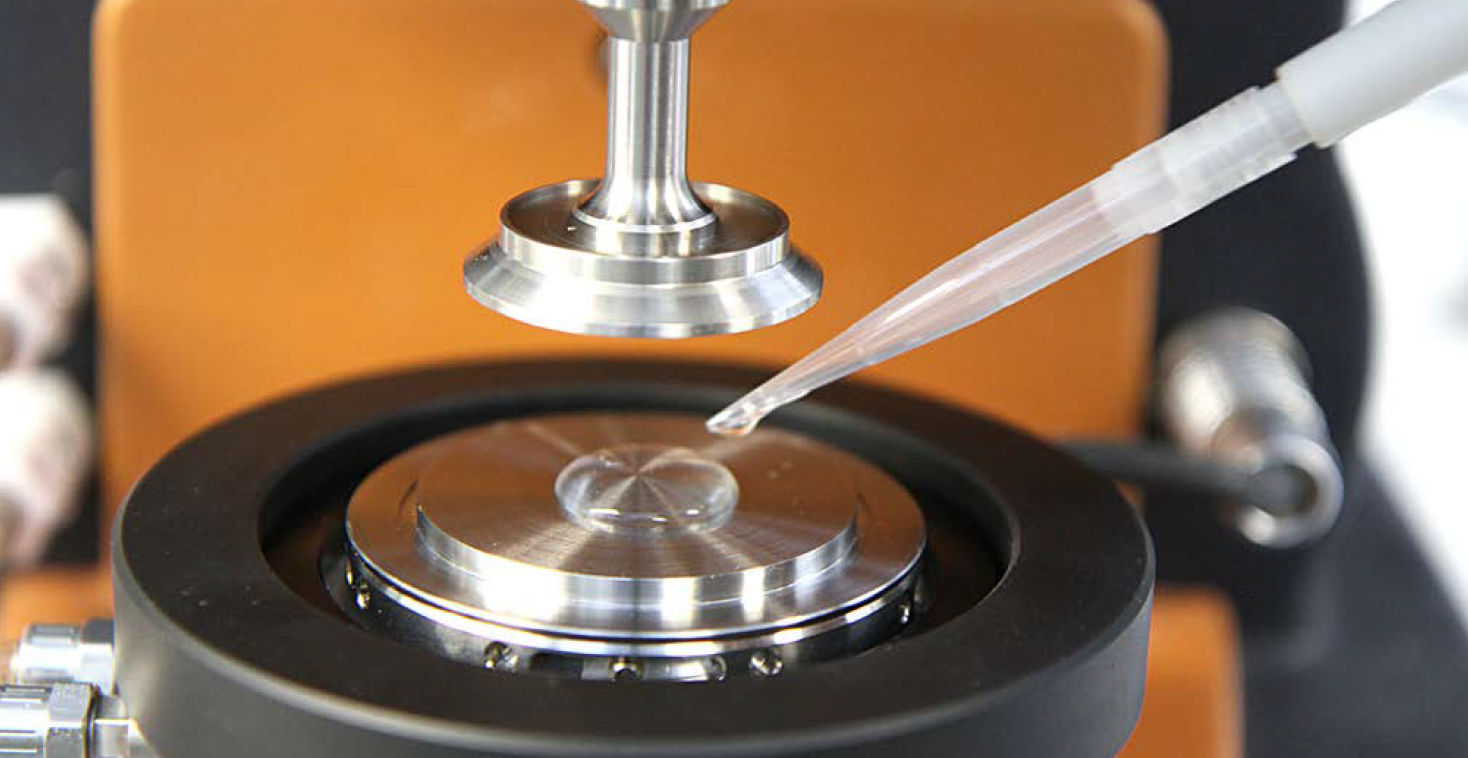
|


